Leadership Roles
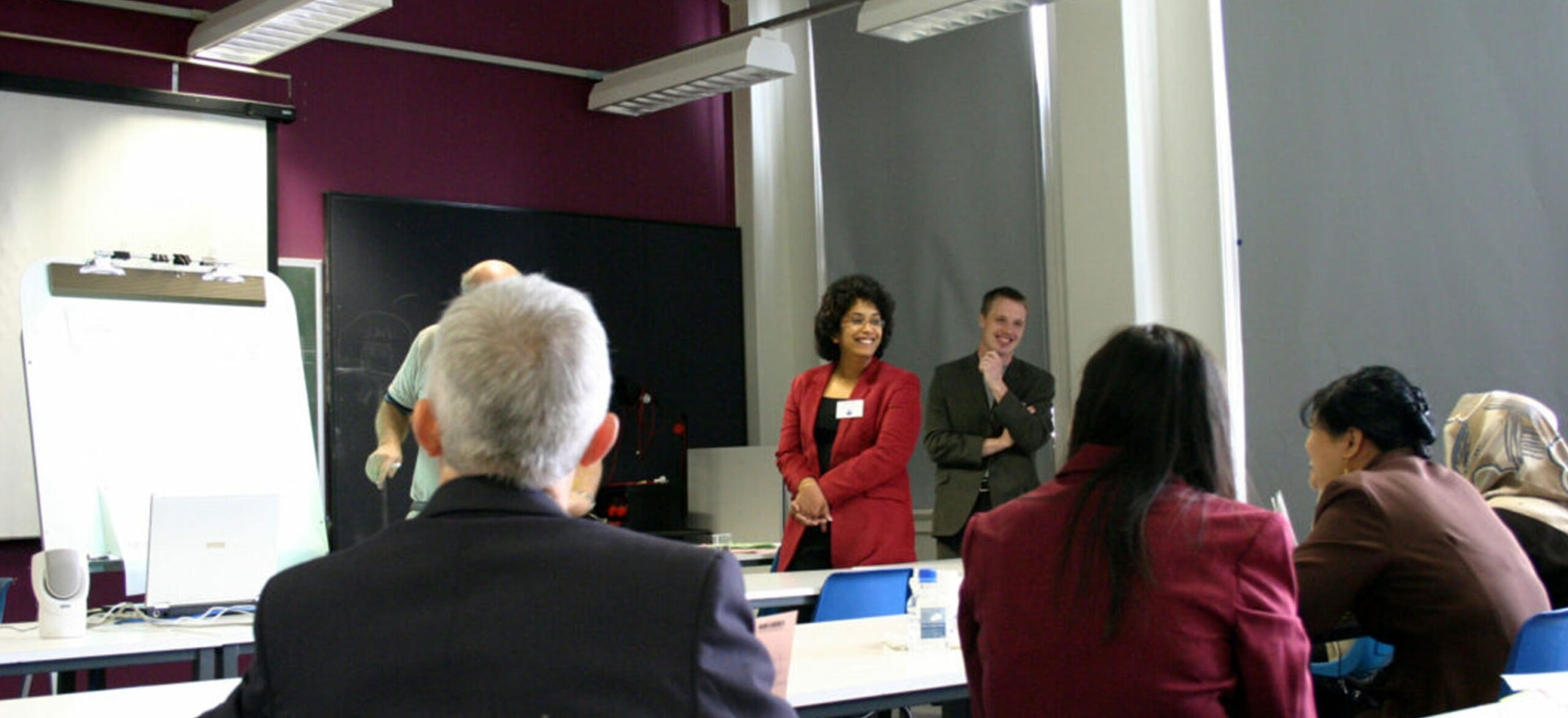
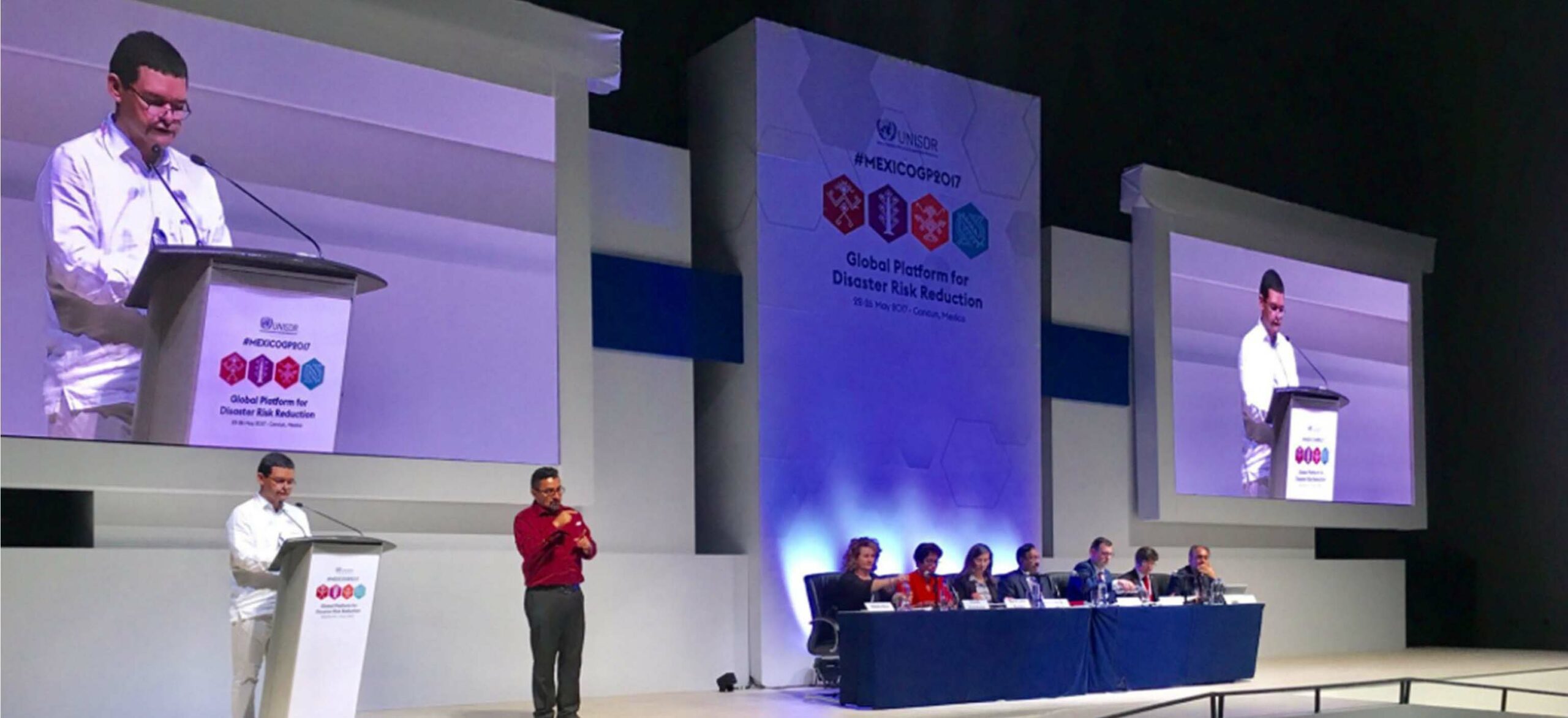
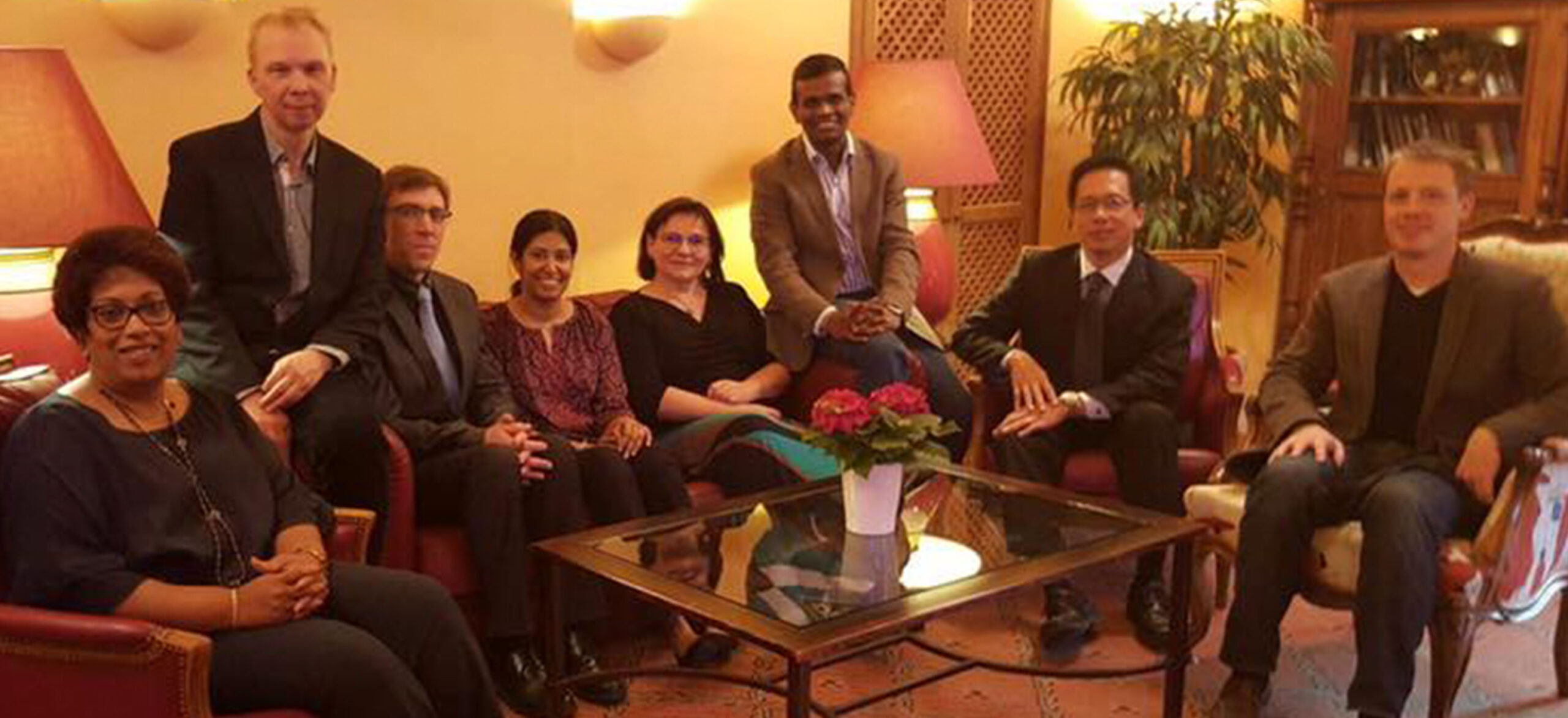
"
My vision has always been to be an international leader in disaster mitigation and reconstruction, and I have been working towards this goal for several years. The key contributions I have made have been in providing leadership within the international research community, within the University and peer respected research. The strengths I have brought to these activities are critical scholarship and leadership. Through my national and international leadership roles, I have contributed to the relevant strategic aims through collaborative working, have demonstrated real leadership and have helped to substantially enhance the reputation of the University through my various contributions.
My vision has always been to be an international leader in disaster mitigation and reconstruction, and I have been working towards this goal for several years. The key contributions I have made have been in providing leadership within the international research community, within the University and peer respected research. The strengths I have brought to these activities are critical scholarship and leadership. Through my national and international leadership roles, I have contributed to the relevant strategic aims through collaborative working, have demonstrated real leadership and have helped to substantially enhance the reputation of the University through my various contributions.
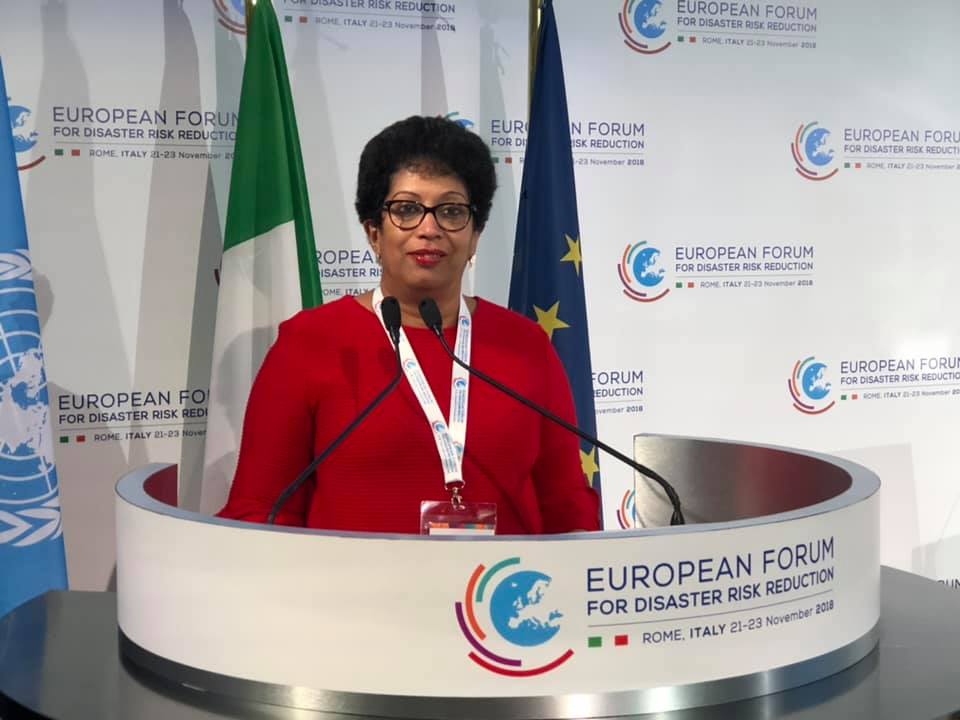
Dilanthi Amaratunga
Professor of Disaster Risk Reduction and Management
| Year | Role |
| 2021 | Co-chair and an Invited expert, UN European Science and Technology Advisory Group (E-STAG) expert engagement with UK Research and Innovation on Adaptation and Resilience for COP26 Expert workshop for E-STAF members and nominated guests with the focus to identify concrete cutting-edge research questions, examples of successful research and impact and recommendations for action and research where science and practice for disaster risk reduction can enhance Adaptation and Resilience. Findings were shared with the E-STAG national representatives to capture the views of all, and a summary document was shared with UKRI. This was incorporated into a synthesis statement. Findings were also shared with UNDRR for input to the European Forum for Disaster Risk Reduction, 24-26 November 2021. E-STAG (is a group of science and technology experts, nominated by EU Member States |
| 2021 | Plenary session lead at the European Forum for Disaster Risk Reduction
Appointed by the UNDRR (United Nations Office for Disaster Risk Reduction) as the Plenary session lead on “COVID-19 and Systemic Risk” co-lead, along with WHO, held from 24 – 26 November 21, in Matosinhos, Portugal. EFDRR was organised by UNDRR, the Portuguese National Authority for Civil Protection, European Commission, and Council of Europe. EFDRR forms the regional platform structure of Europe. The triennial EFDRR has established itself as an important vehicle to address the regional disaster risk challenges. It serves as a forum for other stakeholders to take a shared responsibility and make actionable commitments to reduce disaster risk. The conference, true to the multi-stakeholder spirit of the Sendai Framework, enables governments and stakeholders to exchange experiences on successful practices and innovative approaches to prevent, reduce and manage disaster risk. This results in forward looking action plans based on a mutual sharing status of DRR implementation.
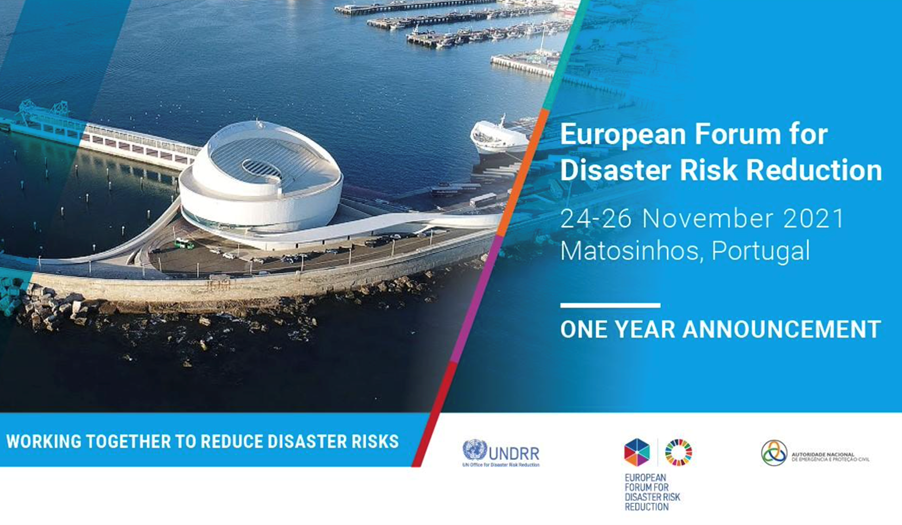 |
| 2020 | Conference co-chair, International Symposium on Tsunami and Multi-Hazard Risks, Early Warning and Community Awareness in supporting the implementation of Sendai Framework DRR 2015-2030 – To promote and support the availability and application of research, science and technology to Policy, Practice, and decision-making in DRR, 16th to 18th December 2020, Cinnamon Grand, Colombo, Sri Lanka |
| 2020 | International Observer, Exercise Indian Ocean Wave 2020: An Indian Ocean-wide Tsunami Warning and Communications, UNESCO IOTWMS |
| 2019 – 2020 | Appointed as a Steering Committee Member of Royal Academy of Engineering with specific input to guide the Frontiers of Development programme, from April 2019, which is a programme across the four UK academies (The Royal Academy of Engineering, The Academy of Medical Sciences, The British Academy and The Royal Society) |
| 2018 | International Observer, Exercise Indian Ocean Wave 2018: An Indian Ocean-wide Tsunami Warning and Communications, UNESCO IOTWMS |
| 2018 | Coordinator, international research workshop on LOCALISING STRATEGIES FOR MAKING CITIES RESILIENT TO DISASTERS, 22nd January 2018 to 26th January 2018, Manila, Philippines. 58 scientists from the UK and the Philippines took part in the event |
| 2017 | Conference co-chair. 7th International Conference on Building Resilience: Using scientific knowledge to inform policy and practice in disaster risk reduction, 27-29 November 2017 Bangkok, Thailand. Over 325 academics, researchers and policymakers took part, making this conference the largest in the field to be held |
| 2017 – 2018 | Appointed by Royal Academy of Engineering as the Chair of RCUK GCRF funded Inclusive Prosperity and Wellbeing in the Context of Mass Displacement International Frontiers of Development Symposium to be held in Kigali, Rwanda |
| 2015 – date | University of Huddersfield lead on the UK Government Research Assessment Framework exercise (REF 2021) on Architecture, Planning, and the built environment theme |
| 2014 – date | Head, Global Disaster Resilience Centre, University of Huddersfield, UK. The focus of the Centre is to promote research and scholarly activity that examines the role of the built environment industry to anticipate and respond to disasters that damage or destroy communities and their built, natural and human environment |
| 2008 – date | Joint Editor in Chief, International Journal of Disaster Resilience in the Built Environment. Published by Emerald Publishing, UK. The journal, indexed in SCOPUS and ISI Web of Science™ Core Collection, Emerging Sources Citation Index (ESCI) and published by Emerald Publishing, UK, is the only journal in the field to promote research and scholarly activity that examines the role of building and construction to anticipate and respond to disasters that damage or destroy the built environment |
| 2016 – date | Global Working Group Co-Leader. Words into action – leading UNISDR (United Nations International Strategy for Disaster Reduction) Words into Action Guidelines on Accountability within the context of disaster risk governance. Appointed by UNISDR under the initiative towards the Development of the Sendai Framework “Words into Action” Implementation Guide for the Accountability for Disaster Risk Reduction |
| 2016 – date | Global Working Group Leader, Words into action – leading UNISDR (United Nations International Strategy for Disaster Reduction) Words into Action Guidelines on Construction Practice and Policy. Appointed by UNISDR under the initiative towards the Development of the Sendai Framework “Words into Action” Implementation Guide for the Construction Practice and Policy |
| 2014 – 2015 | Editor in Chief, Global Assessment Report Background papers, 2015. The Global Assessment Report on Disaster Risk Reduction (GAR) is a biennial global assessment of disaster risk reduction and comprehensive review and analysis of the natural hazards that are affecting humanity. This was launched by the United Nations Sectary General at the 3rd World Conference on Disaster Risk Reduction 2015 held from 14 to 18 March 2015 in Sendai, Japan. (On 20 December 2013, the United Nations General Assembly passed a resolution to hold the 3rd World Conference on Disaster Risk Reduction in Sendai, Japan) |
| 2014 – date | One of two in the UK formally appointed UNISDR (United Nations International Strategy for Disaster Reduction) Resilient Cities Advocate. This appointment is based on the premise that I demonstrate and have knowledge in the field of disaster risk reduction and the “Ten Essentials for Making Cities Resilient”. I seek opportunities to promote the campaign with cities and local governments and suggest innovative ideas and suggestions for further developing the campaign |
| 2002 – date | Research coordination and leadership at international level – Leading prestigious international research collaborations. These collaborative research programmes raise the recognition and reputation of my research while simultaneously enabling me to increase its research capacity and deliver world-class research outputs. Examples of my prestigious international collaborations for which I provide leadership are listed elsewhere on this CV |
| 2011 – 2014 | Executive Member of the College International Board, College of Science and Technology, University of Salford, UK |
| 2011 – 2014 | Executive Member of the College Research and Innovation Board, College of Science and Technology, University of Salford, UK |
| 2009 – 2014 | Associate Head of School (International), School of the Built Environment, University of Salford, UK. Contributed to the strategic work of the School Executive to develop, monitor and review the Schools International Plan and to oversee its implementation in respect of its strategic objectives |
| 2009 – 2014 | Head, Centre for Disaster Resilience, School of the Built Environment. University of Salford, UK. Provided leadership for the creation of a vibrant, inclusive and interdisciplinary research environment in disaster resilience. |
| 2007 – date | Provide leadership to our international conferences on building resilience. This series of events demonstrate my role, as a leader in the disaster mitigation and reconstruction field, an excellent organiser, and as a conduit for international collaboration and engagement. Many of these conferences have brought together major international networks to address global challenges and advance research agendas. I Co-Chaired the 2008, 2011, 2013 and 2014 conferences and I will be co-chairing the 2017 conference to be held in Bangkok in November 2017 |
| 2011 – 2018 | Co-Lead the ANDROID Disaster Resilience Network ANDROID (Academic Network for Disaster Resilience to Optimise Educational Development) aims to promote co-operation and innovation among European HE to increase society’s resilience to disasters of human and natural origin. The network’s teaching and research are concerned with what resilience is, what it means to society, and how societies might achieve greater resilience in the face of increasing threats from natural and human-induced hazards. It has formal partners from the EU and from Canada, Australia and Sri Lanka and 285+ associate partners globally |
| 2008 – 2009 | Director, Centre for Education in the Built Environment, Research Institute for the Built and Human Environment. University of Salford, UK. To promote research and development in learning and teaching in the subject areas of construction, surveying and real estate |
| 2008 – 2010 | Co-Director of the MSc Disaster Mitigation and Reconstruction Programme, School of the Built Environment. University of Salford, UK |
| 2002 – 2007 | Director of Postgraduate Research Studies. Research Institute for the Built and Human Environment. University of Salford, UK. Double 5* rated in 2001 and in receipt of 34% of national QR funding for the built environment area. All activities and functions associated with postgraduate research studies were managed by the Director of Postgraduate Research studies whose responsibility is to provide academic leadership to, and taking overall responsibility for, postgraduate research studies, and co-ordinate the postgraduate research studies of the Institute so that it accords with University requirements and policies |
| 2003 – 2010 | Global Coordinator of the International Council for Research and Innovation in Building and Construction (CIB – Conseil International du Bâtiment) Task Group 53 on Postgraduate Research Training in Building and Construction. International Council for Building (CIB) was established in 1953 as an Association whose objectives were to stimulate and facilitate international cooperation and information exchange between governmental research institutes in the building and construction sector, with an emphasis on those institutes engaged in technical fields of research. CIB has since developed into a worldwide network of over 5000 experts from about 500 member organisations active in the research community, in industry or in education, who cooperate and exchange information in over 50 CIB Commissions covering all fields in building and construction-related research and innovation |
| 2003 – 2007 | Executive Committee Member of the University’s postgraduate research studies sub-committee. University of Salford, UK |
| 2003 – 2004 | Leader, Periodic Programme Review of the school’s Quantity Surveying Degree Programme Director (highly commended by the Audit Chair) |
| 2002 – 2004 | Director, Postgraduate Research Training, Research Institute for the Built and Human Environment (BuHu), University of Salford, UK. BuHu operated a research training programme that comprises an integrated set of practical and theoretical training activities that encompasses both general research training and subject-specific research training aims to provide a balanced set of training events and support that permit postgraduate researchers to develop their personal and professional skills |
| 2002 – 2004 | Programme Director, Quantity Surveying Degree Programme (RICS Accredited). School of the Built Environment. University of Salford, UK |